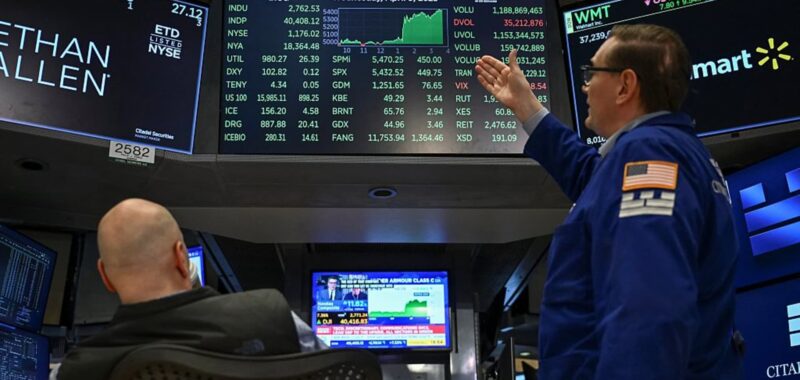
Join us for the ultimate, exclusive, in-person, interactive event with Melissa Lee and the traders for “Fast Money” Live at the Nasdaq MarketSite in Times Square on Thursday, June 5.
Global investors are undergoing a structural rethink of their exposure to U.S. markets, according to economic expert Rebecca Patterson.
Patterson, who served as Bridgewater’s chief investment strategist, contends they’re gradually reducing exposure to U.S. assets and the impact could be significant. Her prediction comes after having conversations with participants in last week’s World Bank and International Monetary Fund meetings in Washington.
“There are a large number of foreign investors who are worried not only about tariffs, but just about America’s reliability as a partner,” Patterson said Monday on CNBC’s “Fast Money.”
Outside of the Trump administration’s tariff policy, she finds foreign investors and policymakers are losing faith in the U.S. on broader fears about the potential weaponizing of capital markets to achieve its economic goals.
That may put global investors’ U.S. holdings at risk, according to Patterson. Foreigners held more than $31 trillion of U.S. assets as of last June, according to the most recent U.S. Treasury data. That’s an increase of $4.4 trillion from the prior year. The gains came as U.S. markets reached all-time highs, thanks in part to megacap tech and the artificial intelligence trade.
“They are looking at a huge U.S. allocation that has built up over the last several years and saying, ‘maybe we should have a little bit less, just trim off the tops’ â basically, have a risk premium on U.S. assets because we have so much uncertainty,” she said.
Even a small reduction in global participation could present a problem for U.S. markets, Patterson warns.
“Pretend you’re the chief investment officer of a major overseas pension fund or sovereign wealth fund. I’m going to take 2% off my U.S. stocks, 2% off my U.S. bonds, a 4% shift,” she said. “That’s $1.2 trillion that is going to be leaving the U.S. now.”
A potential $1.2 trillion sell-off represents 2.3% of the S&P 500‘s total market capitalization, as of Thursday’s close. Still, Patterson emphasizes the capital flight will not happen overnight.
“These investment committees will take months to think about things. They’ll have a meeting, they’ll have a board approve it and then it gets implemented. But what this is, is a slow bleed of support out of the U.S. markets, either going back to home markets or into new opportunities, or things like gold,” said Patterson.
U.S. stocks have broadly underperformed other global equities so far in 2025, with the S&P down 4.7% in that time. Europe’s broad-based STOXX 600 index has gained 3.9% this year, while the MSCI AC Asia Pacific Index has risen 2.8% over the same period, per FactSet.

